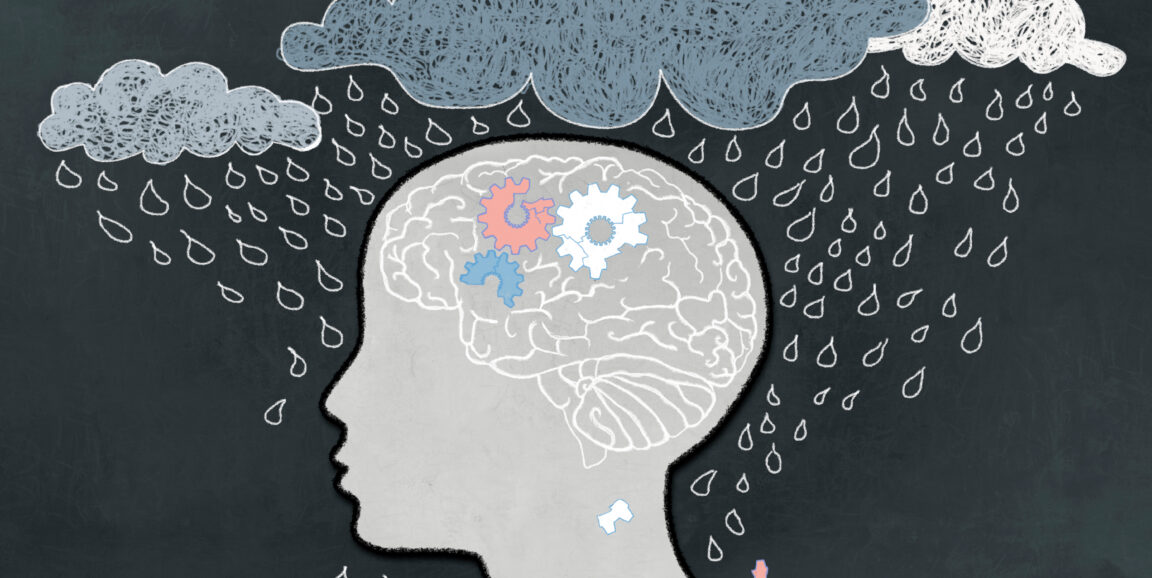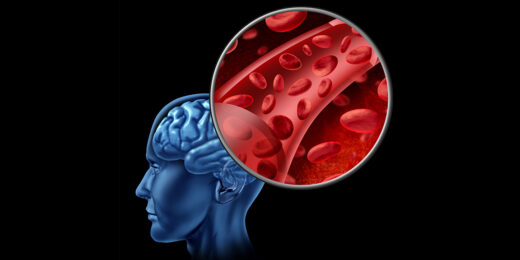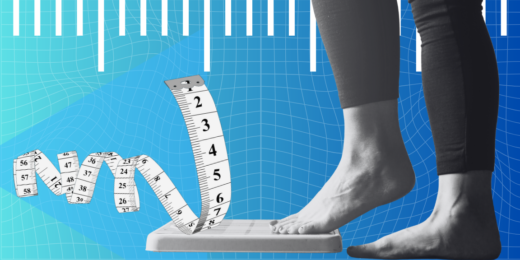For years, researchers have known about a correlation between depression and dementia. But like the age-old chicken-or-egg question, they have struggled to understand which comes first: Is depression an early symptom of dementia, or does depression predispose someone to developing dementia?
Scientists have proposed several hypotheses: One is that, as neurons begin to deteriorate, areas of the brain associated with mood are affected. Another idea is that as people with mild dementia notice their minds aren't as sharp as they once were, they may respond by becoming depressed.
Alternatively, some scientists have theorized that inflammatory changes in the brain that accompany mood disorders might make it more likely for dementia to develop.
Now, a team of scientists led by Victor Henderson, MD, a professor of epidemiology and population health, has made headway in answering the question. Their new study, published in JAMA Neurology, found that the risk of dementia more than doubles for people previously diagnosed with depression -- even when their depression first occurred decades earlier.
The researchers are still unclear how depression increases the risk of developing dementia. But "this interval of multiple decades suggests that depression isn't just an early manifestation of the dementia," said Henderson, who directs the Farrukh-Jamal Stanford Alzheimer's Disease Research Center.
Sifting through data on millions
In the new study, Henderson and colleagues at the University of Pennsylvania and Aarhus University in Denmark turned to the Danish National Patient Registry to analyze data on more than 1.4 million Danish adults from 1977 to 2018. Of those included in the study, 246,499 individuals had been diagnosed with depression, and approximately two-thirds of those people had depression before the age of 60.
Overall, people diagnosed with depression were 2.41 times more likely to develop dementia than those not diagnosed with depression. That association held true even when the depression diagnoses occurred 20 years before the onset of dementia, and even when depression had been diagnosed in young adulthood. Older adults who had been diagnosed with depression 20 to 39 years prior still had an increased dementia risk 1.79 times that of people who had never been diagnosed with depression.
"It was a little surprising that the strength of the association was just as large when depression occurred so many years before," Henderson said. Because the long length of time suggests depression increases the risk, he added, "This is another reminder of the importance of mental health and how vital it is to take depression seriously."
Henderson said that more studies are needed to replicate the findings in other populations -- such as among people in the United States -- and to study whether treating depression decreases the risk of dementia. He noted that it's still not clear what the biological mechanism is linking depression and dementia, even if the timeline has been clarified.
"Maybe people with depression are more socially isolated and have fewer opportunities for mentally and physically engaging activities," he said. "Maybe there are genetic factors that simultaneously predispose people to both depression and dementia. Or maybe the chronic inflammation that we see in the brains of people with depression can trigger or promote pathological processes that lead to dementia. Still, any explanation for this link remains speculative."
Photo by T. L. Furrer






